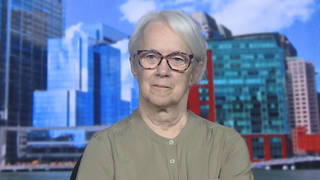
Topics
A new U.S. peace drive will not bring a quick end to 14 months of Israeli-Palestinian bloodshed, analysts said asviolence flared on the eve of the mission. New U.S. Mideast peace envoy, former U.S. Marine Corps General AnthonyZinni, toured the West Bank prior to a scheduled meeting with Palestinian Authority Chairman Yasser Arafat.Palestinian officials hoped to mitigate the diplomatic damage of Palestinian shooting attacks that killed threeIsraelis a day before.
Arafat and senior Palestinian Authority officials will host the U.S. Middle East envoys in Ramallah later today. ThePalestinians are expected to mount a diplomatic counter-offensive, underscoring their demands that internationalobservers be sent to the territories, and reiterating their opposition to Prime Minister Ariel Sharon’s demand forseven days of absolute calm before instituting the recommendations of the Mitchell Commission on quelling violenceand returning to peace talks.
The Islamic Jihad and the Al-Aqsa Martyrs Brigade, which are linked to Arafat’s Fatah group, claimed responsibilityfor the attack. They said the attack was to avenge the killing of Palestinian militants by Israel and the killings offive Palestinians by an Israeli bomb in Gaza last week. The Palestinian Authority condemned both attacks and said itwas committed to the success of the new U.S. mediation mission.
Here in the US, the Palestinian population may hope the US will help broker peace in the Middle East. They also saytheir immigrant community has suffered new setbacks since the September 11th attacks. They say that contrary to whatAmericans saw on television, most Palestinians did not celebrate the Sept. 11 attacks. Palestinian Americans andother Arab Americans continue to feel the repercussions of the footage of Palestinians celebrating in the streetsshown repeatedly on CNN after the attack. Racial profiling and discrimination at airports and on the streets nowcharacterize life for those communities.
At the Globalization and Resistance conference in New York two weeks ago, Rabab Abdulhadi, a Palestinian-Americanprofessor, gave this talk, called “Here and there: reflections of a Palestinian diaspora.”
Tape:
- Rabab Abdulhadi, assistant professor at the Center for Gender Studies at New York University.











Media Options